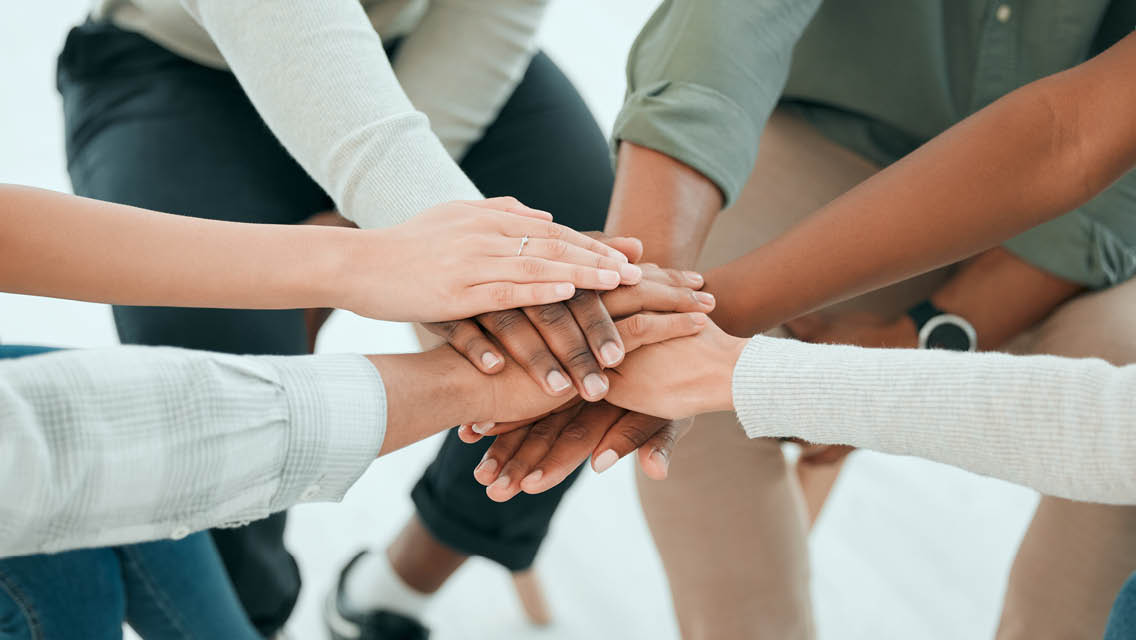True belonging doesn’t require us to change who we are. It requires us to be who we are,” writes Brené Brown, PhD, LMSW, in Braving the Wilderness: The Quest for True Belonging and the Courage to Stand Alone.
The social-science powerhouse has spent the past two decades researching what it means to belong. Her best-selling books, including Daring Greatly and Rising Strong, opened a worldwide discussion on how vulnerability, courage, shame, and empathy shape our lives, relationships, and communities.
In her latest book, Brown attempts to help readers navigate a long-standing paradox: How do we honor our personal integrity while fulfilling our desire to be part of something bigger than ourselves?
Living a principled life has always been challenging, but it’s becoming more difficult, Brown argues, because we’re grappling with a crisis of “spiritual disconnection.”
“[Research] participants talked about their concern that the only thing that binds us together now is shared fear and disdain, not common humanity, shared trust, respect, or love,” she writes. “They reported feeling more afraid to disagree or debate with friends, colleagues, and family because of the lack of civility and tolerance.”
Fear drives “us versus them” cultures and narratives: “Fear of vulnerability. Fear of getting hurt. Fear of the pain of disconnection. Fear of criticism and failure. Fear of conflict. Fear of not measuring up,” Brown notes.
People-pleasing and not wanting to be cast out of our families and other groups that are important to us motivate our decisions to hunker down into echo chambers.
The Power of Dehumanization
Fear also magnifies our compulsion to sort ourselves into factions. Historically, national conversations have centered on what we should fear and whom we should blame.
Dehumanizing language and imagery have been central to creating these divisions. For example, Nazis called Jews “rats” and depicted them as disease-carrying rodents in books for adults and children; current narratives reduce Muslims to terrorists; and Native Americans have long been referred to as savages.
In his classic study of African-American depictions in motion pictures, Toms, Coons, Mulattoes, Mammies, and Bucks: An Interpretive History of Blacks in American Films, Donald Bogle outlines how filmmakers have used caricatures to marginalize black people.
Bogle traces the roots of blackface minstrelsy as an example. Beginning in the early 1800s, white actors blackened their skin with burnt cork, wore tattered clothes, and mocked black people — playing racialized stereotypes for laughs. Hugely popular, and often the only exposure to African-American life many white Northerners experienced, minstrelsy desensitized audiences to the brutality of chattel slavery and later Jim Crow laws.
The codifying of African Americans and other people of color as inferior still pervades American mass media, politics, and sports-team mascots.
Social-media platforms have also become fertile ground for dehumanizing behavior. “On Twitter and Facebook we can rapidly push the people with whom we disagree into the dangerous territory of moral exclusion, with little to no accountability, and often in complete anonymity,” Brown writes.
Recognizing and refusing to use marginalizing language and imagery is an important practice of true belonging. “When we hear people referred to as animals or aliens, we should immediately wonder, Is this an attempt to reduce someone’s humanity so we can get away with hurting them or denying them basic human rights?” Brown explains.
The Courage to Connect
We can rehumanize one another by “moving in.” Taking the time to get to know people in person thwarts the disembodied opinions we hear. “It is not easy to hate people close up,” she notes.
This strategy has been powerfully employed in the struggle for LGBTQ rights. To help them overcome stereotypes and reclaim their authenticity and humanity, slain civil-rights leader Harvey Milk encouraged every queer person to find the strength to come out to his or her family, friends, neighbors, and coworkers. “And once they realize that we are indeed everywhere, every myth, every lie, every innuendo will be destroyed once and for all,” Milk said. “And once you do, you will feel so much better.”
To truly belong, Brown argues, we paradoxically must be willing to be rejected by others.
A 12-year-old she interviewed explained the difference between fitting in and true belonging this way: “If I get to be me, I belong. If I have to be like you, I fit in.”
Each of us likely has parts of ourselves or our lives that we’re hiding so we can fit in. But if we’re willing to stand up, face our fears, and share who we are and what we believe, we’ll lead a life of authenticity, dignity, and self-respect. We’ll also create meaningful connections with others, making the world a better place for everyone.
4 Ways to Transform Conflict
Moving toward others while remaining true to ourselves can be challenging. In an interview with Brené Brown that appeared in Braving the Wilderness: The Quest for True Belonging and the Courage to Stand Alone, Michelle Buck, PhD, clinical professor of leadership at Northwestern University’s Kellogg School of Management, offers these tips for respectfully navigating disputes so we can create deeper connections.
Increase mutual understanding. Rather than ending a conversation by “agreeing to disagree,” decide to fully explore how all parties involved feel about all the issues.
Get to the root of the argument. Ask the other person about his or her intentions, motives, and interests in having the discussion, and share yours.
Leave the past behind. Rather than bringing up prior conversations, shift the focus to the present and to what you hope to accomplish in the future together.
Listen to learn. When you’re ready to turn away from or end a conflict, use “tell me more” or “help me understand.” This fosters connection by letting the other person know you’re really paying attention and invested in the relationship.




This Post Has 0 Comments